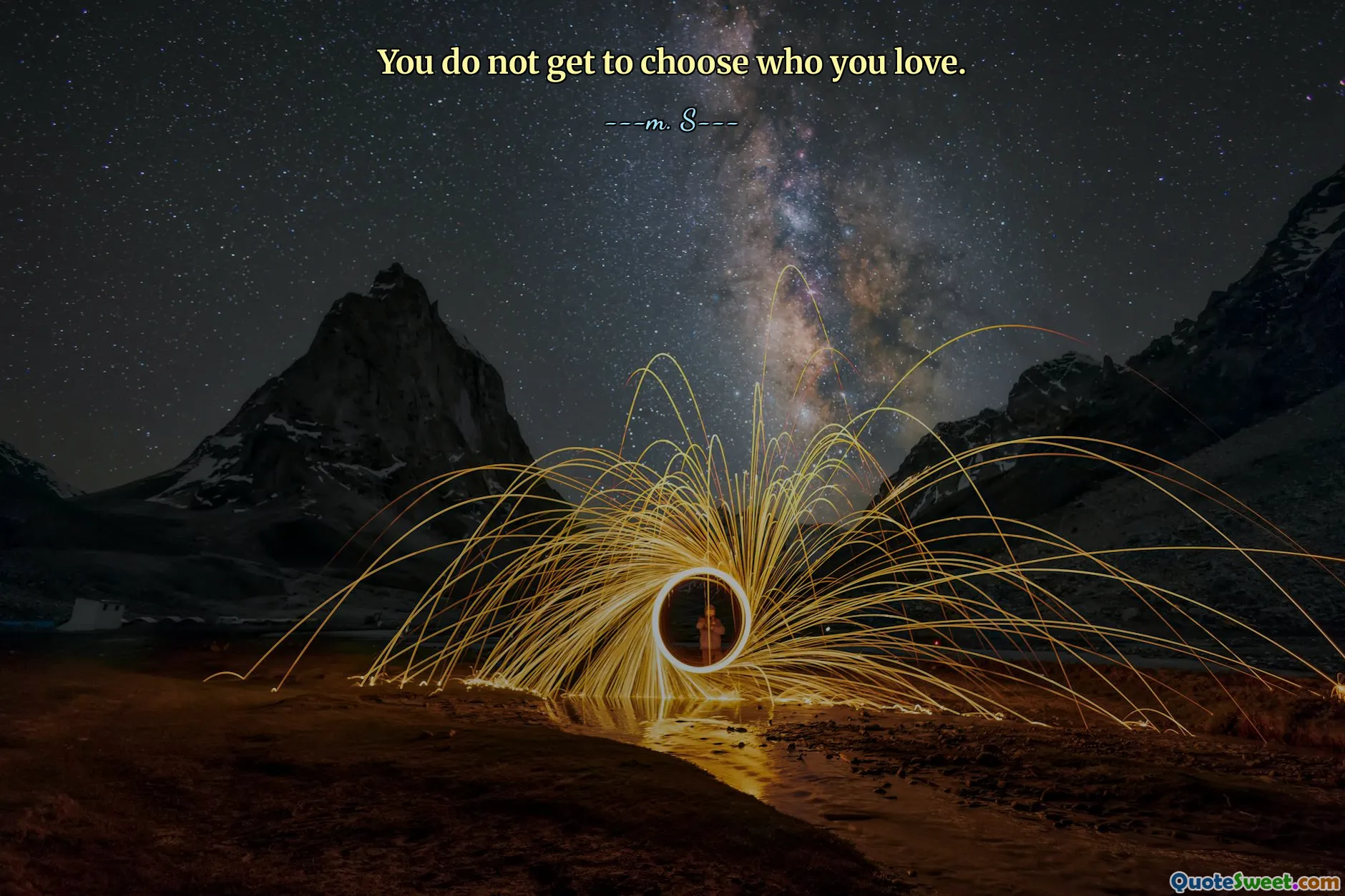
You do not get to choose who you love.
Love, as captured succinctly in the quote "You do not get to choose who you love," is one of the most powerful and uncontrollable forces in our lives. Despite our best intentions or logical reasoning, the heart often operates independent of the rational mind. It challenges the idea that love is a calculated choice and instead presents itself as an organic, spontaneous phenomenon that unfolds without our consent.
This quote invites a contemplation of the nature of love—how it transcends societal norms, expectations, and sometimes even personal preferences. Often, people assume that love aligns neatly with compatibility, convenience, or mutual interests. However, countless experiences and narratives suggest that love can defy these parameters, emerging in the most unexpected and sometimes inconvenient circumstances. This shows that love's origins are less about control and more about surrender, a theme echoed in poetry, literature, and human experience across cultures.
The depth of this quote also reminds us that love's unpredictability can be both a source of profound joy and great challenge. When we don't get to choose who we love, it can lead us to relationships filled with growth, unexpected lessons, and emotional risk. It encourages openness and acceptance, pushing us beyond rigid expectations and prejudices. At the same time, it underscores the notion that love is authentic only when it is free and cannot be orchestrated, commodified, or chosen according to convenience.
In acknowledging the uncontrollable nature of love, this quote might also serve as comfort to those grappling with feelings that go against societal acceptance or comfort zones. It normalizes the experience of vulnerability and unpredictability in emotional matters, highlighting that love isn’t always neat or confined to societal rules. Lastly, this quote touches on the humility required in relationships: a willingness to embrace uncertainty and to grow through the connection offered, regardless of whether it meets our initial expectations or not.
In essence, "You do not get to choose who you love" empowers us to respect the complexities and mysteries of human emotions, urging us to accept love in its most genuine form—organic, sometimes inconvenient, but always transformative.











